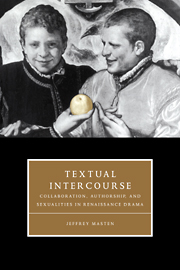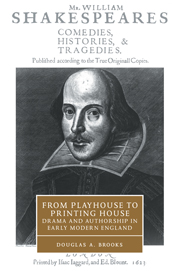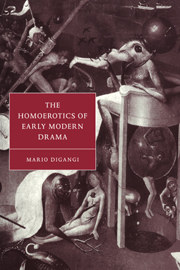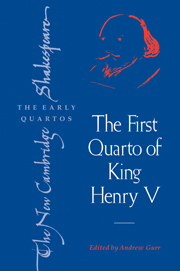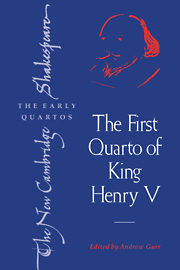Textual Intercourse
Textual Intercourse proposes that the language and practice of writing plays in early modern England was inextricably linked to languages and practices of eroticism, sexuality and reproduction. Jeffrey Masten reads a range of early modern materials - burial records, contemporary biographical anecdotes and theatrical records, essays, conduct books and poems; the printed apparatus of published plays, and the plays themselves - to illustrate the ways in which writing for the theatre shifted from a model of homoerotic collaboration toward one of singular authorship on a patriarchal-absolutist model. Plays and collections of plays by Shakespeare, Shakespeare and Fletcher, Beaumont and Fletcher, Margaret Cavendish, and others, are considered. Textual Intercourse illustrate the ways in which methods attuned to sexuality and gender can illuminate more traditional questions of authorship, attribution, textual editing and intellectual property.
- Radical re-reading of Renaissance drama, through history of the sexualities that surrounded and informed it
- New insight into the work of Shakespeare, including his collaborative work, and other playwrights including Margaret Cavendish
- Authorship/collaboration are becoming increasingly more popular
Reviews & endorsements
"Masten's is a lucidly argued study of the relationship between such issues as dramatic collaboration and authorship, and the notions of subjectivity and erotic practices....His wonderful reading of Pericles is just one of the many splendid philological readings in which Masten recovers for us early modern erotic taxonomy, revealing the layers of the erotic, sexual, 'queer' meaning embedded in the depth of language....The Renaissance gender historiography, especially queer studies, has benefited greatly from the orginality of Masten's book." Goran V. Stanivukovic, Boston Book Review
"...His analysis also brings out more personal and erotic aspects of this partnership." Studies in English Literature
"Jeffrey Masten (Harvard) has produced a short book you will want to read more than once. It is brilliant." "...Textual Intercourse becomes one of the most significant books in its field this year. Very highly recommended." Bibliotheque d'Humanisme et Renaissance
"...Masten's work is exemplary; his text demonstrates thorough research and documentation...." Dana E. Aspinall, Sixteenth Century Journal
"...Masten's provocative thesis has significant implications for our understanding of authorship, sexuality, and ideological transformation in seventeenth-century England, and should be taken as a necessary point of depaarture for future scholarship in these areas." Mario DiGangi, Journal of English & Germanic Philology
Product details
February 1997Paperback
9780521589208
240 pages
226 × 152 × 14 mm
0.33kg
11 b/w illus.
Available
Table of Contents
- Introduction
- 1. Seeing double: collaboration and the interpretation of Renaissance drama
- 2. Between gentlemen: homoeroticism, collaboration, and the discourse of friendship
- 3. Representing authority: patriarchalism, absolutism, and the author on stage
- 4. Reproducing works: dramatic quartos and folios in the seventeenth century
- 5. Mistris Corrivall: Margaret Cavendish's dramatic production
- Notes
- Bibliography
- Index.

